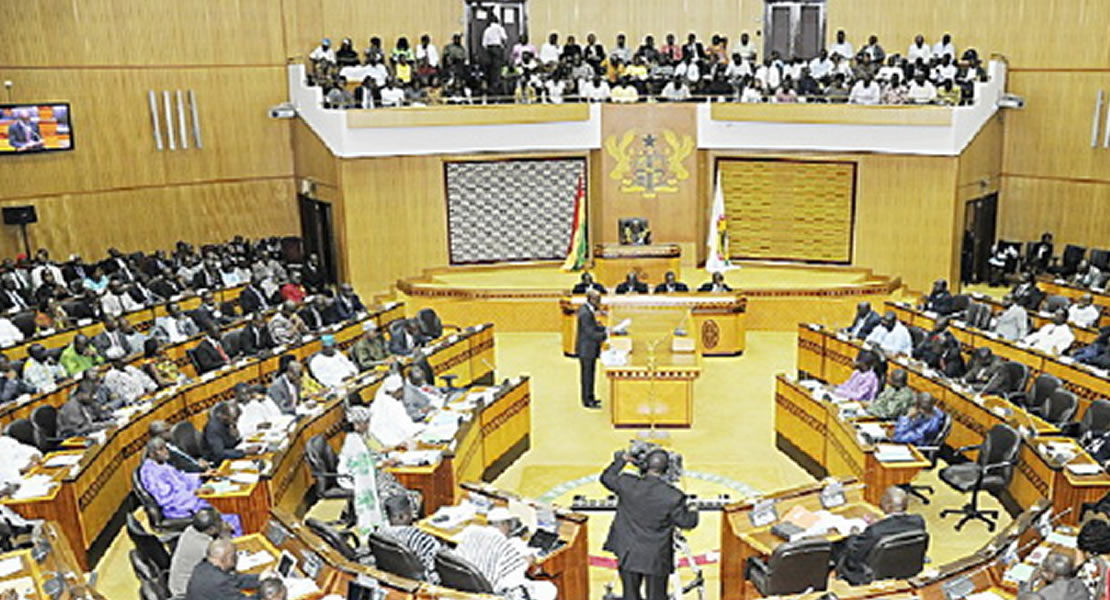
A Parliamentary committee debating matrixes of the proposed amendments to the 1992 constitution resolved that a sitting President who defects from the political party on whose ticket he won elections should automatically vacate office.
Participants say the Vice-President must succeed him or her. This was contained in a communique issued after a workshop organised by the Institute of Economic Affairs (IEA) at Akosombo in the Eastern region on the proposed amendments to the 1992 constitution.
Members were drawn from the leadership of Parliament and members of the Constitutional, Legal and Parliamentary Affairs and the Subsidiary Legislation Committees of Parliament.
The three day workshop (March 25-27,2011) under the theme, “Giving Voice to the Voiceless in Ghana’s Constitutional Review Process 93, which was organised under the auspices of the IEA/UNDEF Project aimed at building the capacity of Members of Parliament on the Proposed Constitutional Amendments.
According to the communique, where a Vice-President defects from the party on whose ticket he was elected into office, he or she must resign and under this circumstance, the President should nominate a replacement with the prior approval of Parliament.
On the controversial emoluments of article 71 office holders, the communique stated that there should be a one-time approved emolument and other benefits for the President, Vice-President, MPs and all other specified office holders under the article.
It explained that provision be made for a relevant body to make periodic adjustments for inflation and other variables. On ministerial appointment, it said all Ministers should be appointed from outside Parliament.
It said there should be a limit on the number of Ministers who may be appointed, except that the President may exceed the limit only with the prior approval of Parliament. The communique said there should be a maximum of two Deputy Ministers per Ministry and that a person ceases to be a Minister if Parliament passes a vote of censure in him or her. The President’s State of the Nation Address according to the communique must have regard to Article 34 (2) on the steps taken to ensure the realisation of the policy objectives of the Directive Principles of State Policy.
On the legislature, it said the Constitution should interpret the concept of 93financial implications” in Article 108 in a way that will enable Private Members’ Bills to be introduced. It said Constituency boundaries should be reviewed every ten years after the national population census. However, opinions were divided on whether proficiency in English should be a qualifying criterion for membership of Parliament. According to the statement, there should be an upper limit of thirteen judges (13) on the Supreme Court.
It explained that the panel system should be maintained, except that in constitutional cases, all available Justices of the Supreme Court should sit and that there should not be an upper limit on the number of Court of Appeal Justices.
It said the Regional Tribunals should be abolished. It indicated that the DCE should be nominated by the President on the recommendation of a Committee appointed by him which should include representatives of the Public Services Commission adding, the nominee should be approved by two-thirds of the members of the District Assembly present by voting.
It said The President should appoint the 30% membership of the District Assemblies based on Guidelines issued by Legislative Instrument and that Members of Parliament should not be included for purposes of calculating the 30% appointed members It indicated that the Presiding member should be elected by a simple majority of all the members of the Assembly. The communique said the Administrator of the District Assemblies Common Fund should be appointed as an independent officer of the Constitution.
The statement said Queenmothers and female chiefs should qualify for membership of Regional Houses of Chiefs in regions where they exist and should also qualify for membership of the National House of Chiefs
It said any judicial power of Chiefs should be restricted to Chieftaincy matters adding that accountability of Chiefs should be discussed within the context of legislative reform and not constitutional review.
It mention that gender and gender-related matters should be clustered in the same provisions in the Constitution and that affirmative action provisions should be included in the Constitution which should be included to provisions on gender parity, a six month maternity leave period as well as a period of paternity leave. Discrimination against persons with disabilities according to the statement should be constitutionally prohibited. It said Independent Councils on the Disabled and on Gender should be established by the Constitution.
“Special additional parliamentary seats regionally competed for should be created for women and the disabled”, it said.
GNA